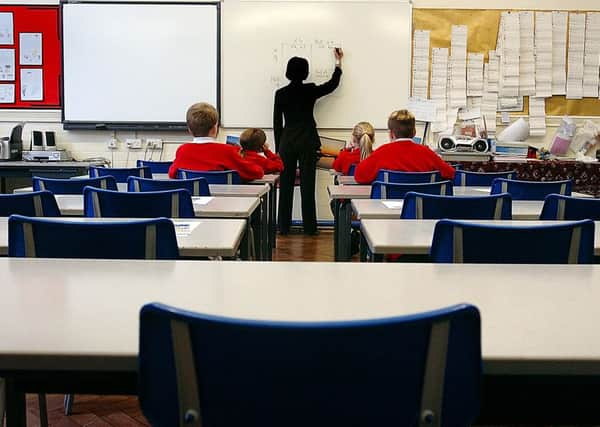How you can make a good impression at your child’s school
This article contains affiliate links. We may earn a small commission on items purchased through this article, but that does not affect our editorial judgement.


Today’s parents are expected to be more involved in their child’s education than ever and getting involved in school life can reap real rewards.
Research shows that good links between parents and school improve a child’s enjoyment and his or her chances of doing well. The more parents know about what their child is learning, the more support they can offer.
Parent Teacher Associations:
Advertisement
Hide AdAdvertisement
Hide AdMost schools have a Parent Teacher Association (PTA), an organisation of parents and staff. Its role is to encourage closer links between home and school. PTAs are best known for their fundraising work, but they have a useful social function too. Fundraising events provide an opportunity for parents, staff and pupils to get together. Being a member need not take up hours of spare time - baking cakes, selling raffle tickets, designing posters or helping out on the tea stall are important contributions. Funds raised by the PTA are intended to provide ‘extras’ not already provided by the school’s main income – often ‘fun things’ that make learning more interesting and exciting. The PTA committee and the headteacher decide how to spend PTA funds. Common items include computers, playground equipment, a school minibus and smaller purchases such as presents for Father Christmas to distribute, or lights for a Divali celebration.
Volunteering:
Different ways of volunteering at your child’s school could include helping in the classroom and joining school trips. Classroom helpers volunteer to assist teachers regularly, usually in primary schools. They help with tasks such as listening to pupils read, which is very labour intensive, arts, crafts or computers. Classroom helpers usually commit to spending regular slots of time in school each week. At busy times, such as Christmas or the end of the summer term, volunteers’ involvement is particularly welcome if there are school productions, parties or presentation evenings to organise. Another way parents can help is by offering their skills and workplace experience, or by providing extra adult support on school trips or days out. More and more schools have gardens which grow produce for the school kitchens - again volunteers have a vital role to play in helping with upkeep and regular maintenance.
Becoming a school governor:
Anyone over the age of 18 can be a school governor – you don’t have to be a parent with a child at the school. However, every governing body includes parent governors, and it can be a rewarding way to be involved in your child’s school. The most important qualities for being a governor are enthusiasm, commitment and an interest in education. Teaching experience is not necessary - but time to commit to the role is. School governors help to run the school as the ‘governing body’ and they are involved in decisions about all aspects of managing the school – such as running buildings and budgets, supporting staff and setting standards of school discipline. Governors also help to make big decisions about the school’s long-term goals. They support headteachers, but also ask questions and make sure the headteacher is taking the school in the right direction.
In academies, governors may have additional responsibilities and take on additional functions.
Parents’ evenings:
Advertisement
Hide AdAdvertisement
Hide AdParents’ evenings are one of the best ways for developing relationships between school and home. They are important occasions in the school calendar and give parents and carers the chance to discuss their child’s progress, share any concerns and take an active part in the education process. Parental attendance at these evenings sends out a crucial message to children that education is important and that their achievements are recognised and valued.
Parents who have any concerns or anxieties about their child’s progress in school will have an opportunity to discuss them face-to-face. It is also important to give your child feedback - if he or she has been doing well or has been praised by teachers, pass it on.